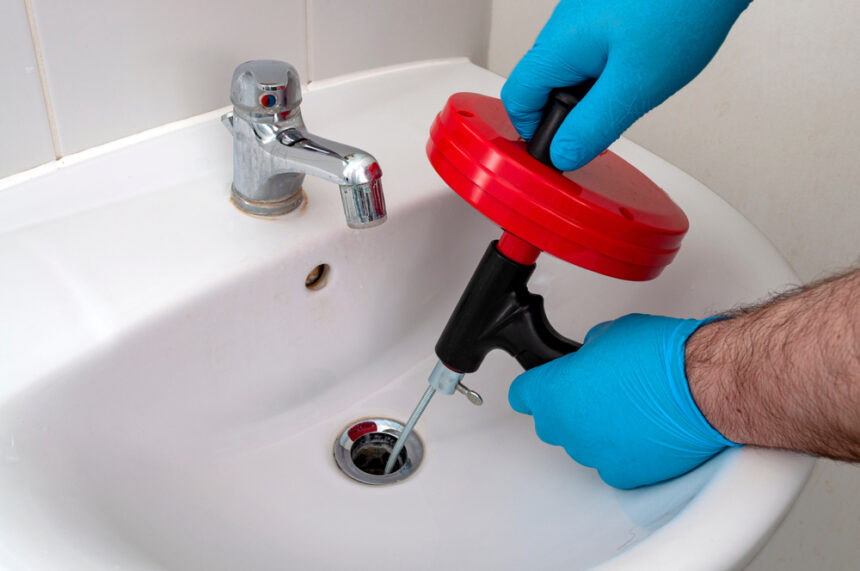Clogs start unexpectedly, but they always follow a pattern. It starts with a slow drain, then a strange gurgling noise. All of a sudden, your sink or shower will be backed up, and you’ll be staring at a plumbing problem.
Drain snaking is one of the most effective tools in a plumber’s arsenal. Understanding the different types of methods used for drain cleaning in Hazleton, PA, can save you the hassle of paying for something you don’t need.
What Is The Purpose Of A Drain Snake?
Drain snakes are used mainly to clear buildup from sinks and drains. Using long, flexible tools, experts can clear clogs in plumbing pipes, restoring normal water flow. Whether the clog is from grease, hair, paper, or even tree roots, the right drain snake can handle it.
Main uses include:
- Clearing hair and soap scum from bathroom drains
- Removing grease and food debris from kitchen sinks
- Breaking through tougher clogs deeper in the sewer line
Handheld Drain Snakes: Great for Minor Clogs
Often used by homeowners and plumbers for light-duty jobs, handheld drain snakes are lightweight and portable. These offer the perfect solution for small, shallow clogs in bathroom sinks, tubs, and showers, providing precise control.
To use this type of drain snake effectively, make sure to feed the snake into the drain or sink slowly. Never force it. Instead, turn the handle as you go and use gentle pressure. And lastly, always wear gloves and eye protection.
Motorized Drain Snakes: Tackling Stubborn Blockages
Manual force may not be enough to move some types of clogs. This is where heavy-duty motorized snakes come in. These spin a thick cable fast enough to break up dense clogs and are great for mainline backups, tree root invasions, and long runs of drainpipe that need clearing.
A plumber from drain cleaning services notes, “Motorized snakes are essential for clearing out deep, stubborn clogs that are beyond reach. They’re powerful but need to be handled carefully to avoid damaging the pipe.”
The Gross Factor: What’s Really in Those Drains
Plumbers often find kids’ toys, paper towels, clumps of pet hair, feminine products, grease balls the size of fists, you name it.
Fortunately, homeowners only need to stay on top of regular maintenance, coupled with being mindful of what goes down the drain, to prevent these situations. Avoid flushing wipes, food scraps, and anything besides waste and toilet paper.
Can a Drain Snake Damage Pipes?
Many homeowners hesitate to snake drains for fear of damaging pipes. They have good reason to have this fear, as misuse can cause serious issues. Cheap store-bought snakes or improper technique can scratch, puncture, or even snap older pipes.
In expert hands, drain snaking can be done safely and effectively. Pros use the right type of snake for the right pipe and clog, minimizing risk.
Deep Sewer Line Clogs: Know the Signs
You may have a deeper problem if you’ve got more than one slow drain in the house, or sewage smells are creeping in. If you observe gurgling toilets, multiple slow drains, and wet patches in the yard, please contact a plumber as soon as possible.
Tree Roots vs. Your Pipes: A Drain Snake’s Biggest Challenge
Sewer lines are full of moisture, making them the perfect target for tree roots in need of sustenance. Over time, roots crack into the pipes and block flow. If you need to clear roots from sewer lines, motorized drain snakes can come in handy. This is a great device that can slice through intrusions, restoring flow.
The problem with root intrusions is that they usually come back, unless you get rid of the plants near the sewer line entirely. Consider a follow-up inspection or pipe replacement if the problem keeps happening.
Hydro Jetting vs. Drain Snaking: Which Is Better?
Both have their place in a plumber’s arsenal. Drain snakes physically remove or break up blockages. Hydro jetting uses high-pressure water to clear the entire inside of the pipe. This service is great for grease, sludge, and recurring clogs.
Choose hydro jetting when:
- You’ve had repeat blockages
- You want a full-pipe cleaning
- You need to clear large commercial lines
Snaking a drain looks easy until you bend a pipe or fail to clear the clog. When it comes to major blockages, deep sewer issues, or recurring clogs, it’s best to hire a licensed plumber. More than tools, professionals bring experience, safety, and results—everything to give your drains the right treatment.


